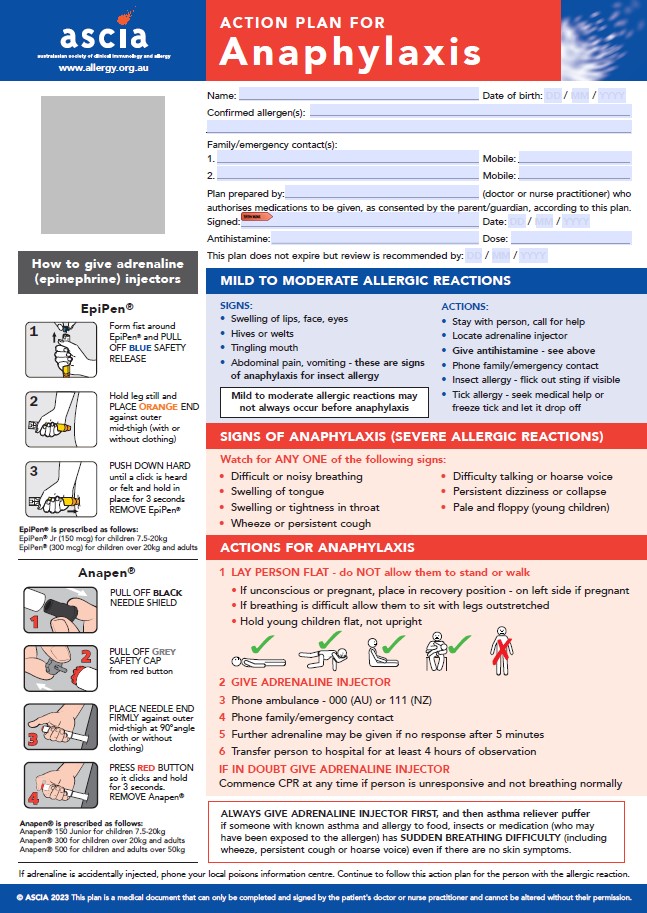Signs and symptoms
Top Tips For Recognising an Allergic Reaction
- Your ASCIA Action Plan lists the signs and symptoms of anaphylaxis.
- If you have any ONE of the signs of anaphylaxis – use your adrenaline (epinephrine) injector (i. e. EpiPen® or Anapen®).
- It is recommended that you stick with either EpiPen® or Anapen® where possible, to avoid getting confused as they are administered differently.
"Be prepared. Always keep your EpiPen® or Anapen® and ASCIA Action Plan with you."
Recognising an allergic reaction
Signs and symptoms of an allergic reaction, including anaphylaxis, usually occur within minutes and up to two hours of eating the food to which you are allergic.
Many factors can affect the severity of an allergic reaction, such as how much allergen you’ve eaten and what it was eaten with, alcohol consumption, walking or exercising, whether you have asthma, if you are unwell, or if you are premenstrual.
Signs of a mild to moderate allergic reaction include:
- Swelling of lips, face, eyes
- Hives or welts
- Tingling mouth
- Abdominal pain, vomiting – Note: these are signs of anaphylaxis for insect allergy, not food allergy
Signs of a severe allergic reaction (anaphylaxis) include:
- Difficult/noisy breathing
- Swelling of tongue
- Swelling/tightness in throat
- Difficulty talking and/or hoarse voice
- Wheeze or persistent cough
- Persistent dizziness or collapse
- Pale and floppy (young children)
- Abdominal pain, vomiting after an insect bite or sting
As soon as you notice any one of these signs, using an EpiPen® or Anapen® is the best treatment for anaphylaxis. It is also important that you don’t stand or walk. You should lie flat or if you are finding it difficult to breathe, sit with your legs outstretched in front of you while you wait for an ambulance to take you to hospital. Do not walk to the ambulance or on to hospital if you have had adrenaline because standing up may drop your blood pressure suddenly and make you very sick.
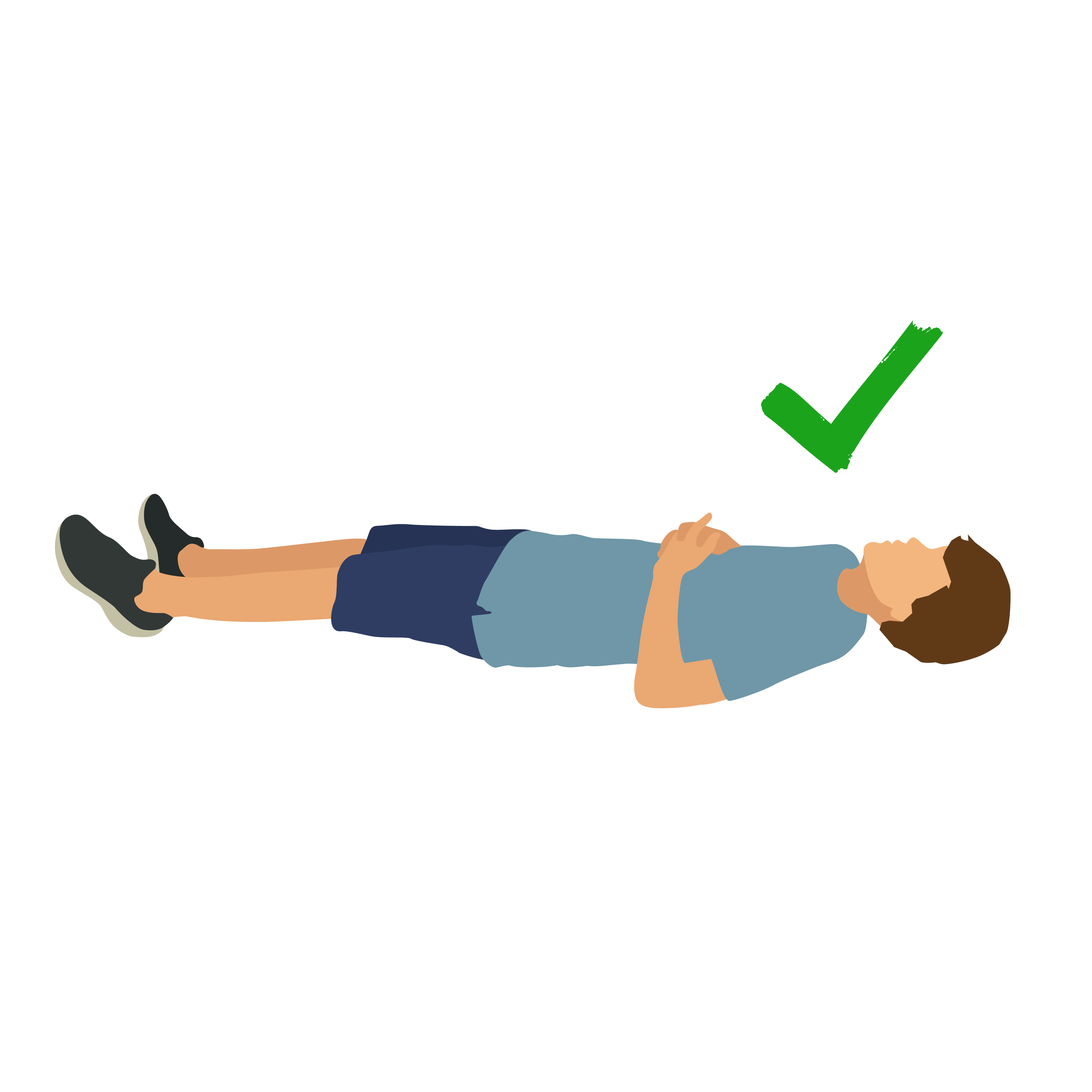
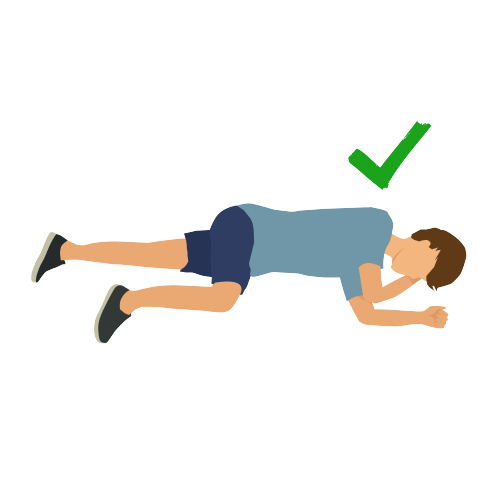
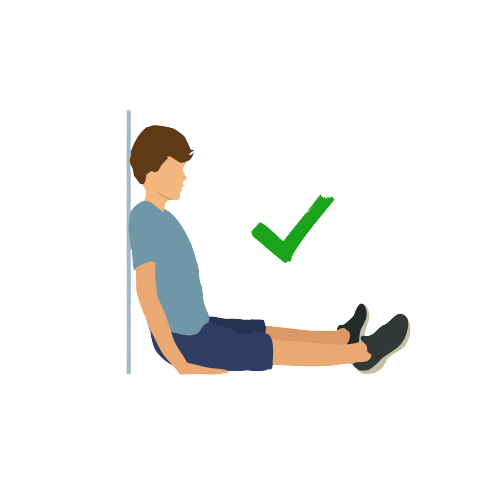
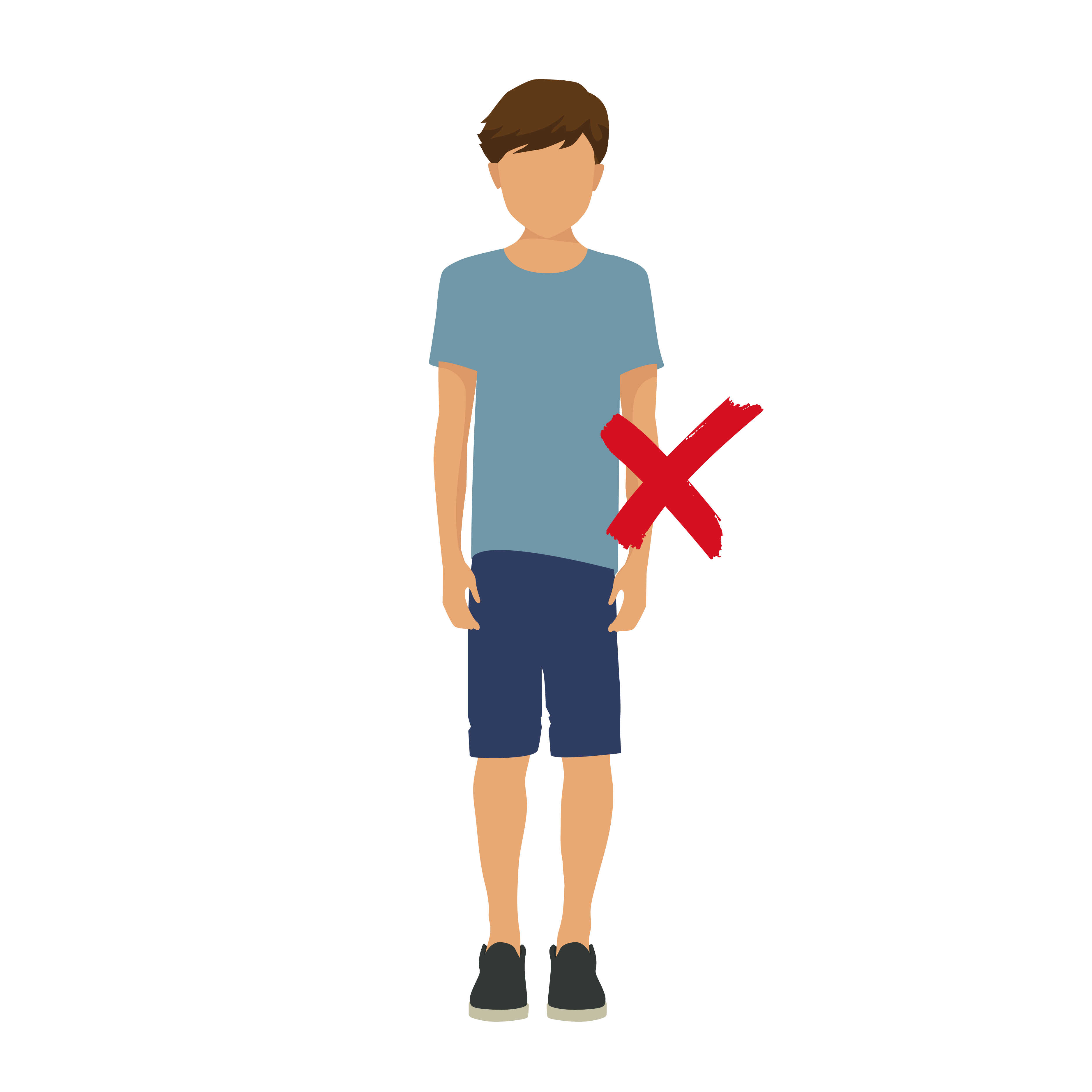
Always call an ambulance to take you to hospital so that they can monitor you and give more adrenaline if needed.
ASCIA Action Plan for Anaphylaxis
If you have been prescribed an EpiPen® or Anapen® adrenaline injector, you should have an ASCIA Action Plan for Anaphylaxis (an emergency response plan – follow instructions if you show signs of an allergic reaction). A copy of you ASCIA Action Plan should be kept with your adrenaline injector as it provides guidance on when and how to use your emergency medication.
Need help?
If you need help or want to discuss allergy management, contact the support organisation below:
Allergy & Anaphylaxis Australia
Phone 1300 728 000
This support line is NOT an emergency helpline. Please call triple zero (000) for an ambulance in an emergency.
"Be prepared. Always keep your EpiPen® or Anapen® and ASCIA Action Plan with you."




